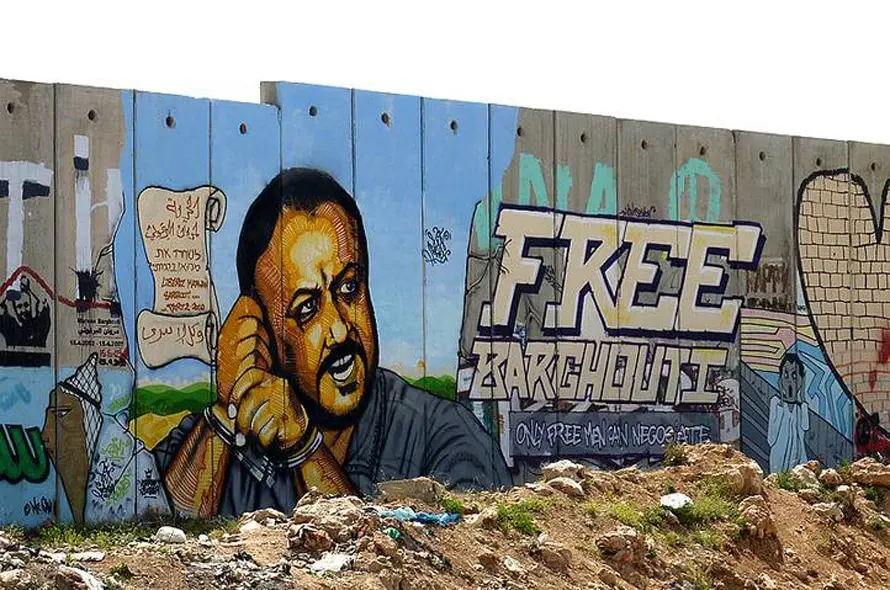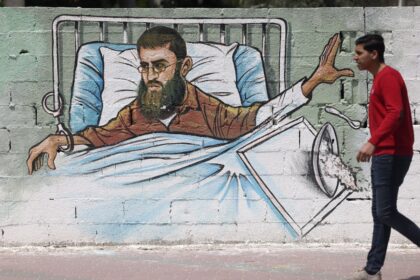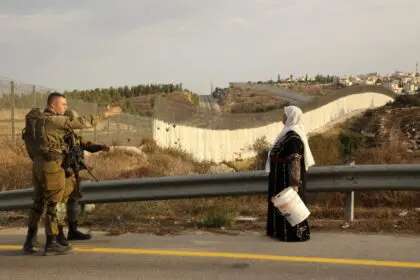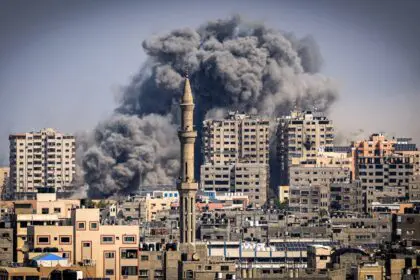Comprehensively covers Israel's detainment of Palestinian Prisoners during the Palestinian-Israeli Conflict, its practice, impact on Palestinian rights, and reports from human rights organisations.
Editorial Note
Palestinian Prisoners, and the crimes committed againsted them by Israel, have gained increasing global attention. This section is part of our Human Rights & International Law coverage within the Palestinian-Israeli Conflict.
Palestinian Prisoners
In the first eight months of 2021, Israel imprisoned more than 5,500 Palestinian men, women and children, adding to roughly one million Palestinians detained since 1967. The issue of Palestinian prisoners has always featured high on the agenda of negotiations between Israel and Palestine. Rights groups have routinely criticised the system of detention for contravening basic human rights and international law.
Through the 1988 Israeli Military Order 1229, administrative detention in Palestine is legal. It allows individuals to be held in custody for up to six months without arrest or trial, if there are “reasonable grounds to presume that the security of the area or public security require the detention. Security is often interpreted broadly to include non-violent speech and political activity. Such detention is often decided upon on the basis of confidential information, undisclosed to the detainee or his attorney, while detention periods are often extended for up to several years.
However, the UN Committee Against Torture has said the detention of ‘inordinately lengthy periods’ could amount to cruel, inhuman or degrading treatment depriving the detainee of basic safeguards such as the right to challenge evidence. It is also estimated that 95 percent of all Palestinian prisoners have suffered torture, humiliation or intimidation during their incarceration, often to force a confession.
According to Israeli military law, children from the age of 12 can also be detained. According to figures collected by the Israeli NGO Btselem, 173 of the 4,291 political prisoners at the end of September 2020 were children. They are treated as adults, often questioned without a family member present and are systematically abused and blackmailed in a bid to try and enlist them as informants, sometimes leading to false confessions and being subjected to stigma outside of prison.
In contravention of the Fourth Geneva Convention, the Israeli authorities also keep a high proportion of prisoners outside of the occupied territories and separate prisoners according to political affiliations, citizenship status or locality to sow division among the Palestinian prison population.
Over the years, the Israeli government has tried to enforce tougher restrictions on Palestinian prisoners, which has led to a pattern of hunger strikes among them to call for better conditions and fairer policies. A notable example is around the #SaltWaterChallenge in 2017, a social media awareness-raising campaign of the plight of Palestinian hunger strikers in prisons.
While the Israel Prison Service (IPS) often ignores hunger strikers’ demands, it is conscious of broader public condemnation and international attention. In the case of the saltwater challenge, the IPS agreed to nearly 80 percent of prisoners’ requests, including better medical treatment and family visitation parameters. However, it fell short by not agreeing to halt administrative detentions and refusing to install public telephones.
PALESTINIAN MINORS UNDER ISRAELI DETENTION
The chart represents the number of Palestinian minors from the West Bank in custody on a given day. Source: B’TSELEM
Human Rights & Palestinian-Israeli Conflict
This article is part of our Human Rights & International Law coverage within the Palestinian-Israeli Conflict.
The Human Rights & International Law dossier on the Palestinian-Israeli Conflict meticulously documents the conflict, covering a wide range of topics, including treaties, human rights violations, policies that contravene international law, and more.





